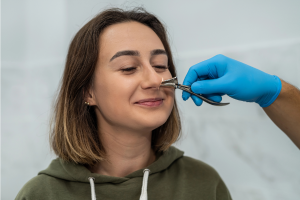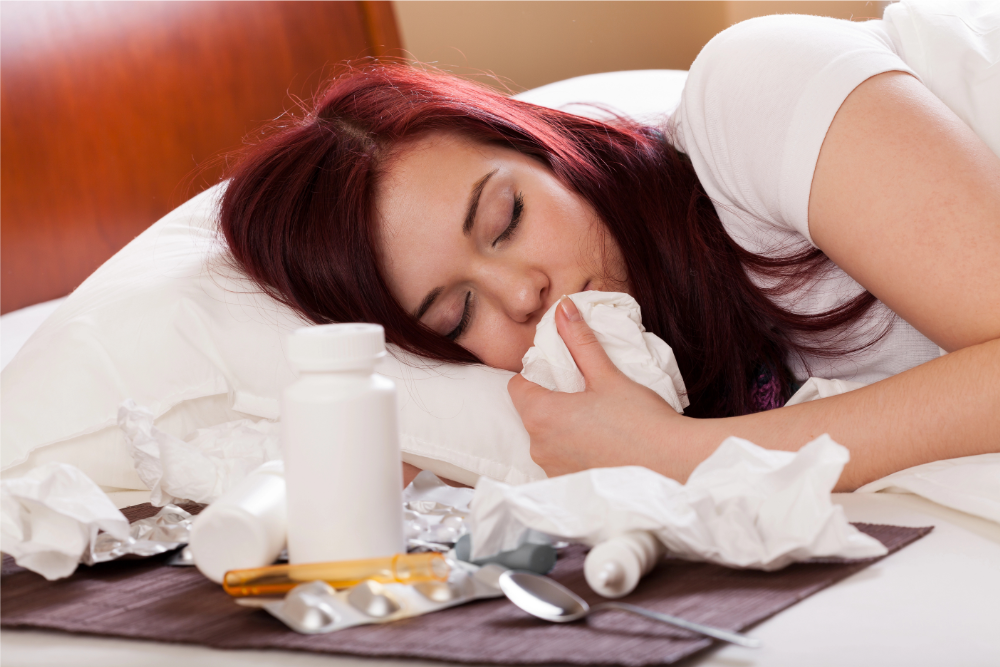If you’ve ever battled a sinus infection, you know how miserable it can be. The pressure in your face, the relentless congestion, the pounding headaches—it’s enough to make even the toughest person desperate for relief. But what if something as simple as better sleep habits could help you feel better faster? It turns out, good sleep hygiene plays a crucial role in how well your body fights infections, including sinusitis.
In this guide, we’ll break down the connection between sleep and sinus health, explore the best sleep practices to ease your symptoms, and offer tips to help you get the rest you need and on when you should see an ENT doctor in Glendale.
The Link Between Sleep and Sinus Health
Sleep is the body’s ultimate repair mode. It’s when your immune system gets to work fighting off infections, repairing damaged tissue, and reducing inflammation. When you don’t get enough high-quality sleep, your body struggles to heal, which can prolong sinus infection symptoms or make them worse.
How Sleep Affects Sinus Infections
- Boosts the Immune System – Quality sleep strengthens the immune system, helping your body fight off bacterial or viral sinus infections more effectively.
- Reduces Inflammation – Inflammation is a major culprit in sinus infections. Poor sleep increases inflammatory markers in the body, which can make congestion and sinus pressure more intense.
- Enhances Mucus Drainage – Lying flat for extended periods can cause mucus to pool in the sinuses, leading to more congestion. Good sleep hygiene can help prevent this buildup.
If your sleep is disrupted or poor-quality, your body doesn’t get the chance to do these essential recovery tasks as effectively. That’s why focusing on sleep hygiene can make a big difference in how you feel.
Also Read: Get Better Sleep: Understanding and Treating Nasal Airway Obstruction
How Poor Sleep Makes Sinus Infections Worse
Lack of sleep doesn’t just slow down healing—it can also make your symptoms more unbearable. Here’s how:
- Increased Sinus Pressure – Sleep deprivation can cause an inflammatory response in the body, which worsens swelling in the nasal passages and sinuses.
- More Frequent Headaches – Many people with sinus infections already experience headaches due to sinus pressure, and poor sleep can make them more frequent and severe.
- Lowered Immune Defense – Sleep deprivation weakens your body’s ability to fight off infections, making it harder to recover.
- Heightened Sensitivity to Pain – Studies show that lack of sleep makes people more sensitive to pain, meaning sinus discomfort might feel even worse when you’re not well-rested.
Clearly, sleep plays a bigger role in sinus health than many people realize. But how can you improve your sleep when congestion and sinus pressure make it difficult to get comfortable?
Best Sleep Hygiene Practices for Sinus Relief
Improving sleep hygiene isn’t just about sleeping longer—it’s about creating an environment and routine that promotes deep, restorative sleep. Here are some simple, science-backed tips to help you rest better while dealing with a sinus infection.
1. Sleep With Your Head Elevated
One of the worst things you can do when you have a sinus infection is sleep flat on your back. Lying completely horizontal allows mucus to pool in your sinuses, leading to more congestion and discomfort.
Try this instead:
- Use an extra pillow or a wedge pillow to keep your head elevated at about a 30-degree angle.
- If pillows aren’t cutting it, consider propping up the head of your bed slightly.
2. Use a Humidifier in Your Bedroom
Dry air can irritate your nasal passages, making congestion worse. Running a humidifier at night helps keep the air moist, which can soothe irritated sinuses and promote mucus drainage.
Tips for using a humidifier effectively:
- Keep humidity levels between 40-50% to prevent mold growth.
- Use filtered water and clean your humidifier regularly to avoid bacteria buildup.
3. Try Nasal Rinses Before Bed
A saline rinse (like a neti pot or saline spray) can clear out mucus and allergens from your sinuses before bedtime. This helps open up your nasal passages, making it easier to breathe and sleep comfortably.
How to do it safely:
- Use sterile or distilled water—never tap water.
- Perform the rinse at least 30 minutes before bed to give your sinuses time to drain completely.
4. Stay Hydrated Throughout the Day
Drinking plenty of fluids helps thin mucus, making it easier to drain from your sinuses. Aim for at least 8 cups of water daily, and consider warm teas or broths for added soothing effects.
What to avoid:
- Caffeine late in the day – Can interfere with sleep.
- Alcohol – Can dehydrate you and cause nasal passages to swell.
5. Take a Warm Shower Before Bed
Steam can work wonders for congested sinuses. A hot shower before bed helps loosen mucus, making it easier to breathe when you lie down.
For extra relief:
- Add eucalyptus oil to the shower for its natural decongestant properties.
- Breathe deeply to allow the steam to open your nasal passages.
6. Choose the Right Sleeping Position
If elevating your head isn’t enough, sleeping on your side may also help reduce sinus pressure. Many people find that one side of their nose is more congested than the other, so experiment with sleeping on the opposite side to encourage drainage.
7. Stick to a Consistent Sleep Schedule
Even when you’re sick, keeping a regular sleep schedule helps regulate your body’s internal clock, leading to better-quality sleep. Try to:
- Go to bed and wake up at the same time every day, even on weekends.
- Get 7-9 hours of sleep for optimal immune function.
8. Avoid Late-Night Screen Time
Blue light from screens can disrupt melatonin production, making it harder to fall asleep.
- Turn off screens at least 30-60 minutes before bed.
- Try reading a book or listening to relaxing music instead.
Also Read: How Do Sinus Infections Affect Your Respiratory Health?
When to See an ENT Doctor in Glendale

- Your sinus infection lasts longer than 10 days or worsens after initial improvement.
- You have severe facial pain, swelling, or fever.
- You experience recurring sinus infections that disrupt your quality of life.
In some cases, chronic sinus infections may require additional treatment, such as antibiotics, nasal corticosteroids, or even a procedure like balloon sinuplasty to open blocked sinuses.
Conclusion
If you’re struggling with a sinus infection, don’t underestimate the power of good sleep hygiene. By elevating your head, keeping the air moist, hydrating properly, and sticking to a consistent bedtime routine, you can support your body’s natural healing process and wake up feeling more refreshed.
While sleep alone won’t cure a sinus infection, it’s one of the best natural ways to boost your immune system, reduce inflammation, and promote faster recovery. So tonight, take a few extra steps to set yourself up for better sleep—you just might breathe a little easier by morning.

